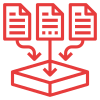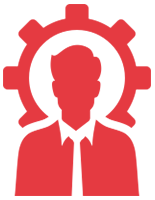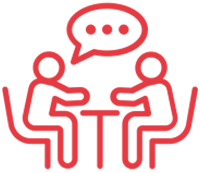Focus Group
At Dissertation India, we understand that collecting data for research is a critical step that can determine the success or failure of your project. To ensure that your research is of the highest quality, we offer expert assistance in focus group discussions - a powerful tool for gathering valuable data.

Qualitative research often involves the use of interviews, focus groups, and observations to understand the perspectives, thoughts, and feelings of respondents. Focus groups, in particular, are a popular method of data collection in research as they not only provide insight into what people think, but also into how and why they hold these beliefs.

However, to conduct a successful focus group discussion, it is important to choose the right place, moderator, and set of questions. A focus group discussion typically consists of 6-8 members engaging in conversations led by one or two people for approximately 90-120 minutes. The moderator plays a crucial role in steering the discussion, keeping it on track, and encouraging participation from all members. At Dissertation India, we provide expert assistance in preparing the correct set of questions for your focus group discussion. Our team of writers lends their expertise and knowledge in data collection by preparing a questionnaire that is all-encompassing, comprehensive, and research-specific. By using our services, you can serve as an effective moderator or manager of focus group discussions and ensure that you are asking the right questions to the right people in the right way.

Our focus group services are specifically designed to cater to the needs of researchers in India. We understand the unique challenges and opportunities that come with conducting research in India and our team of experts is equipped to help you navigate these challenges. Whether you are conducting research in marketing, sociology, media, management, HRM, consumer behavior studies, environment studies or such other domains, we can help you collect valuable data that will contribute to the success of your project. Trust us to provide you with the expert assistance you need to make your research a success.
Instant Connect
First Time Client Offer: Flat 20% discount on quoted prices.








